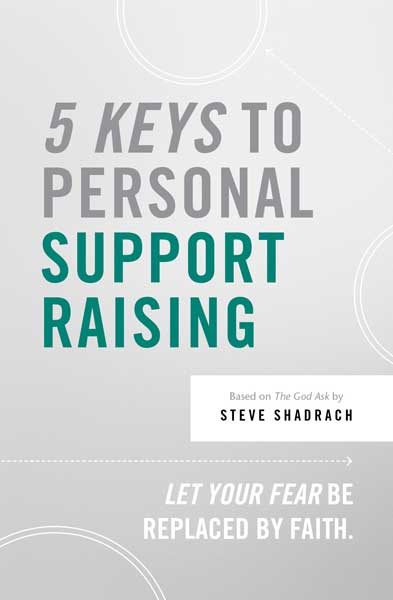A group of missionaries from various agencies decided to meet together each week for accountability. They resolved to be completely honest about their time with God, marriages, private lives, and even their finances. After about three months, Rick, the leader, asked each person to share with the group what percentage of their income they were giving away. The answers shocked him:
• “Income? I don’t consider the support we’ve raised as income. I don’t feel right about giving away funds that others have specifically sent for us.”
• “I think my time is more valuable than my money. We don’t give much away at all, but we more than make up for it with the hours that we put in the ministry.”
• “I don’t know, maybe 2-3% each month. But I don’t feel bad in light of the fact we’re only at 78% of our support budget. We’ll give more as our support increases.”
• “We did a Bible study on debt and got convicted. So now all our funds are going to pay off debt. As soon as we’re debt free, we will funnel that money to giving.”
The next week, Rick prepared a handout for the group about why Christian workers should be leading the way in giving. Here were his main points:
1. ALL believers are commanded to give
Rick listed 1 Corinthians 16:2 where Paul told the Corinthians to set aside funds “every week” to give, and that it should be according to the level of their income. He also included Acts 20:35 where Jesus revealed a God- given built-in instinct in all of us—the fact that it is “more blessed to give than to receive.” Noting these verses were for all Christians (even ones on support!), Rick posed a question to the group: “Will God continue to lead others to give to our ministries if we are not willing to obey Him in our own giving?”
2. We must model what we ask others to do
Rick mentioned how God modeled giving when He gave us His only Son (John 3:16) and how we dare not ask someone to sacrifice and give to us if we are first not setting the pace. He challenged the group to follow the example of the Macedonian church as they were “rich in generosity” even though they had “extreme poverty” and “severe trials” (2 Corinthians 8:1-2). Then he asked, “Should us giving to God’s work take even a higher priority than asking others giving to us and our work?
3. We reap what we sow
Rick said we can’t fool God and He has created some basic cause and effect principles that apply to all people–everywhere. He backed it up by quoting Proverbs 11:25 where “the generous man will be prosperous and he who waters will himself be watered.” He challenged the group to come up with some specific action steps to begin giving sacrificially, consistently, joyfully, and secretly—and if they did, God would reward them (Matthew 6:4). Rick left them with a final question: “Do we want to get to heaven and find out all our supporters have built up huge bank accounts, but ours is tiny?”

